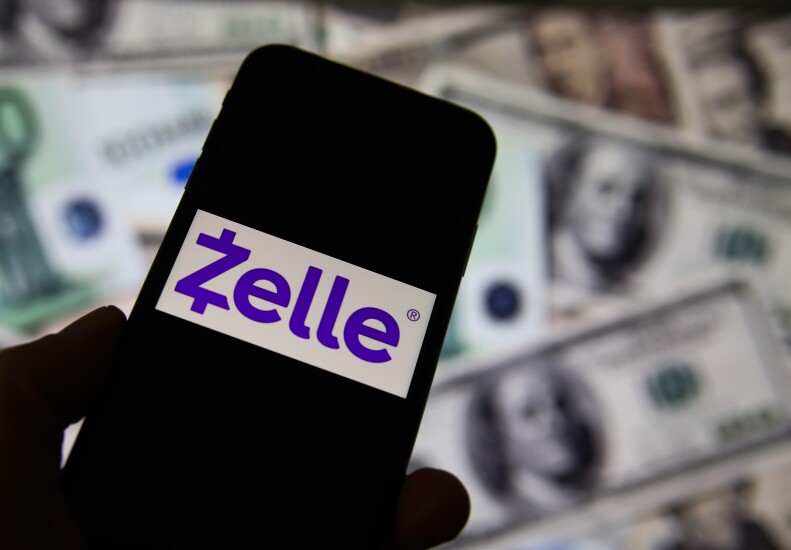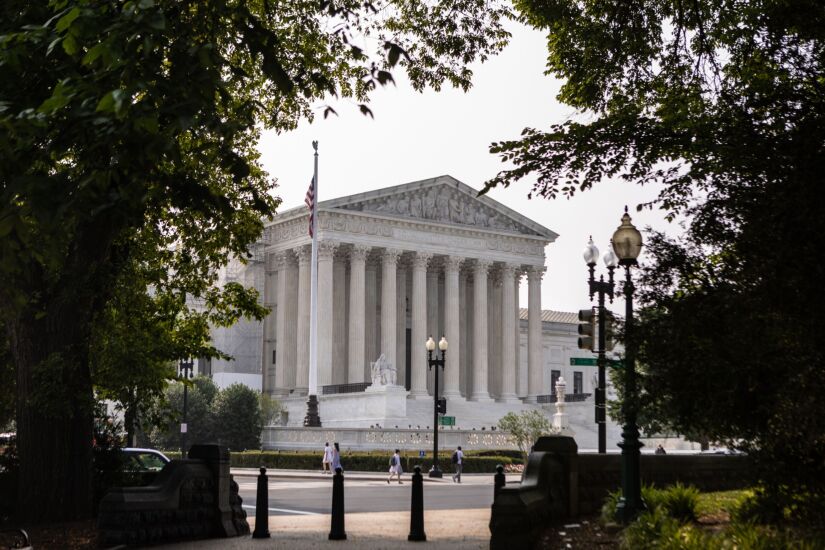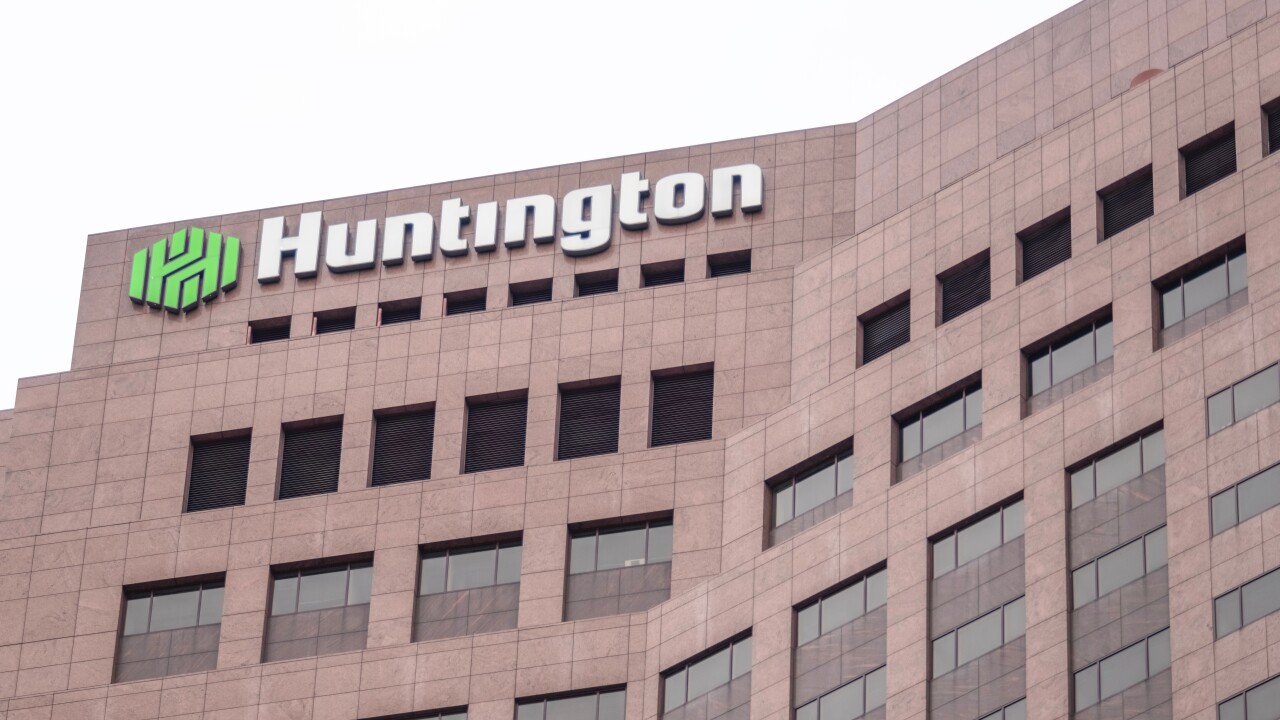In July's roundup of American Banker's favorite stories: A Zelle outage at JPMorgan Chase could cause headaches for other banks, talking points for understanding FedNow, the Elkhart, Kansas-based Heartland Tri-State Bank is shuttered by the Federal Deposit Insurance Corp. and more.

Zelle outage at JPMorgan Chase is red flag for banks
It was the second Zelle glitch in six months that involved a bank tied to
Glitches

What bankers need to know about FedNow
FedNow joins The Clearing House's RTP Network in supporting instant settlement in the U.S. In an email, David Watson, president and CEO of The Clearing House, said "The Clearing House which operates the RTP network, the instant payments system in the United States, welcomes FedNow to the real-time payments space. The launch draws more attention to how consumers and businesses are looking to send and receive money instantly between their accounts, which the RTP network has been enabling for millions of bank and credit union customers since 2017."
Any bank that's considering joining this new payment rail will have to consider the costs of processing and of any technology investment needed to properly route transactions to — or from — this new platform.

How Goldman Sachs' deal with Apple went sour
Payments industry experts say it's not completely surprising that nearly four years after the Goldman-issued
"In short, Goldman didn't say 'no,' enough to Apple," said Hugh Tallents, a senior partner at New York-based strategy consulting firm cg42.

Supreme Court could limit enforcement powers of U.S. banking agencies
The specific lawsuit involves the Securities and Exchange Commission, but it has big implications for a broad range of U.S. regulators. In the banking realm, those agencies include the Federal Deposit Insurance Corp., the Federal Reserve, the Office of the Comptroller of the Currency and the Consumer Financial Protection Bureau.
Some legal observers say that the justices — who agreed to take the case in late June — are likely to uphold a ruling by the 5th U.S. Circuit Court of Appeals. The appeals court sided with a hedge-fund founder who challenged the SEC's authority to bring an enforcement case through the administrative law system.

JPMorgan Chase using advanced AI to detect fraud
Fraudsters look for the weakest link, the place that is least protected, Schmiedl said. And they often find it somewhere inside a corporate client.
"In a lot of cases, they're attacking corporates, because there are so many people in a corporate entity and they don't communicate a lot," Schmiedl — who is global head of payments, trust and safety at the bank — said on a panel at Fintech Connect last week.
He oversees JPMorgan's efforts to detect fraud and financial crimes through fraud controls, sanctions screening, know-your-customer checks and other means. Before joining the bank, he had a similar role at Amazon.

CFPB's Chopra on late fees, Big Tech and a looming Supreme Court case
The Consumer Financial Protection Bureau celebrated its 12th anniversary on July 21, prompting Chopra to discuss the agency's work including a controversial proposal to set credit card late fees at $8.
In a wide-ranging interview with American Banker, Chopra discussed why banks are getting additional supervisory scrutiny for assessing multiple fees when consumers overdraw their bank accounts. He also discusses the bureau's plans for open banking that would help consumers more easily switch banks, and how the CFPB plans to create a more level playing field in the fast-changing world of real-time payments.

Dream First Bank assumes Heartland Tri-State Bank's deposits
The announcement came shortly after the Kansas Office of the State Bank Commissioner shuttered Heartland and appointed the FDIC as receiver. The FDIC said the agreement will cause a $54.2 million hit to the Deposit Insurance Fund, which it says is the least costly resolution.
FDIC said Heartland Tri-State Bank branches will reopen normally under the Dream First Bank name on Monday, July 31, and customer accounts will automatically transfer over to the new company.

Banks, credit unions join in push for racially equitable underwriting
The collaboration, Underwriting for Racial Justice, aims to create new lending criteria for lower-income U.S. borrowers who have historically faced higher barriers to obtaining financing.
The goal is to address bias by unpacking norms in underwriting, said Erin Kilmer Neel, executive director at Beneficial State Foundation, the nonprofit organization that is coordinating the initiative.

SECU's new CEO talks branches, lending and a 'measured' approach to tech
The $50.8 billion-asset credit union appointed a new CEO last month, with a plan to get the institution caught up to its peers in its use of technology while also keeping the pace of growth of its branch footprint.
The promotion of
The credit union industry has a lot of women leaders already; a 2021 study by the Credit Union National Association found that

What the end of admission preferences means for banks, credit unions
Two weeks after the June 29 decision, there is a growing consensus that diversity, equity and inclusion policies and programs at banks and credit unions — and across corporate America — are about to face a lot more scrutiny. Some programs could face legal challenges that are inspired by the Supreme Court's ruling that race cannot be used as a factor in college admissions.
Banks and credit unions, and their corporate counsels, are likely now in the midst of trying to figure out the possible ramifications of the court's decision. Initiatives that could be under the microscope include internship programs for minority students and representation goals aimed at increasing workforce diversity, legal experts say.





